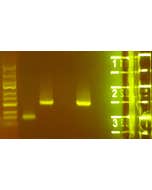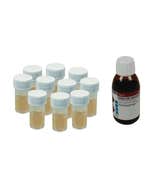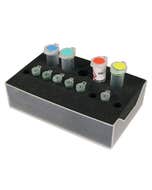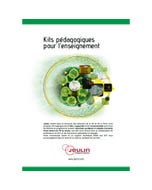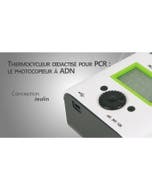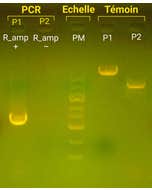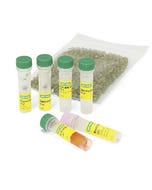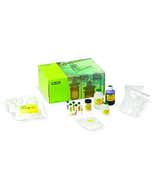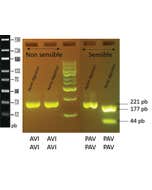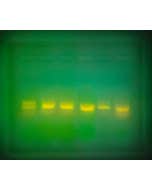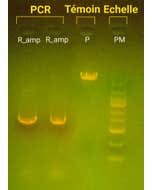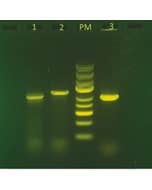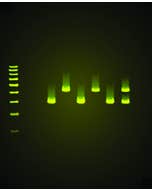PCR Kit for the Detection of "Natural" GMOs
Sku: 117262
Jeulin
The strong points
€125.13
€150.16
To create GMOs in the laboratory (insertion of exogenous DNA sequences into a target genome), scientists use the gene vector technique based on the ability of certain bacteria like *agrobacterium* to transfer genetic material. This process mimics a phenomenon that frequently occurs in nature. In 2019, researchers from the IBMP highlighted the existence of numerous transgenic plants in nature and that this phenomenon had been more common during plant evolution. This lab practical aims to detect by PCR in the peanut genome, a DNA sequence inherited *naturally* from *agrobacterium*. This presence indicates a horizontal genetic transfer that occurred during evolution. The experiment is carried out in 3 steps: sample extraction/purification (raw peanuts from the market), PCR amplification, and agarose gel electrophoresis. **Objectives:** identify the presence or absence of an *agrobacterium* gene, complemented by sequence analysis using genetic software. **Reference Articles:** Matveeva, T.V., Otten, L. Widespread occurrence of natural genetic transformation of plants by Agrobacterium. Plant Mol Biol 101, 415–437 (2019). [https://doi.org/10.1007/s11103-019-00913-y](https://link.springer.com/article/10.1007/s11103-019-00913-y) Edern Appéré, [In producing GMOs, we are only imitating nature](https://savoirs-archives.unistra.fr/recherche/en-produisant-des-ogm-on-ne-fait-quimiter-la-nature/). University of Strasbourg (2020) Duration of the Lab Practical: 2 sessions of 60 minutes Format for 20 students Storage: 12 months at -20°C
Composition: PCR microtubes, primers, ready-to-use PCR reagents, peanut samples, molecular weight ladder
| Thématiques | PCR |
|
Caractéristiques techniques
|









